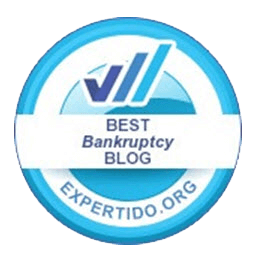Obtaining a degree is an excellent investment in your career and your future, but doing so often comes with considerable debt. If you’re overwhelmed by student loan debt and wondering what – if anything – you can do about it, you’ll be heartened to know that a range of options are available – depending upon the circumstances involved. Discuss your concerns with an experienced debt relief attorney today.
Points to Keep in Mind
Some important points to keep in mind when it comes to addressing student loan debt are that you generally have more options and more flexibility with federal student loans than you do with private student loans. Further, the best option for you – in your unique situation – will depend on factors like the following:
- The amount of debt you owe
- The kind of loans you took out
- Your financial standing post-graduation
Graduated Repayment Plan
All borrowers are eligible for graduated repayment plans. This option begins with lower payments that increase gradually over time – paying the full loan off over a 10-year period. This is a good plan for those who expect their earning power to increase with time and who are interested in paying their loans off relatively quickly.
Extended Repayment Plan
Many borrowers are eligible for extended repayment plans, but for Direct Loans and Federal Family Education Loans (FFELs), borrowers must owe at least $30,000 to qualify. With this plan, payments can be either fixed or graduated, and loans are paid in full over a period of up to 25 years. This extended payment period translates to more considerable interest overall, but it can benefit those with larger balances who can only handle smaller payments.
Public Service Loan Forgiveness
The Public Service Loan Forgiveness Program (PSLF) forgives all remaining student loan debt for those who work for a government agency or for a qualified nonprofit for at least 120 months and who make 120 corresponding student loan payments. This is a great option for those who qualify.
Pay as You Earn Repayment Plan
For those who received a direct loan disbursement on or after October 1, 2011, the Pay as You Earn (PAYE) repayment plan sets their monthly payments at a certain percentage of their discretionary income but never surpasses what they’d pay with a standard repayment plan. This can be a good choice for those who need to lower their monthly payments, but it doesn’t work well for those whose incomes fluctuate considerably from year to year.
There Are a Range of Additional Options
In addition to the programs above, the government offers a Saving on a Valuable Education (SAVE) plan in which monthly payments are set at from 5 to 10 percent of discretionary income. There is also an Income-Based Repayment (IBR) plan, an Income-Contingent Repayment (ICR) plan, and an Income-Sensitive Repayment (ISR) plan that offers variations on savings.
Turn to an Experienced South Carolina Debt Relief Attorney for the Help You Need
The seasoned debt relief attorneys at Reed Law Firm appreciate how important addressing your student loan debt head-on is to your future and have the legal skill and knowledge to help. To learn more, please contact us online or call us at 803-710-4719 in Columbia, South Carolina, and at 843-396-8076 in Florence, South Carolina, today.


